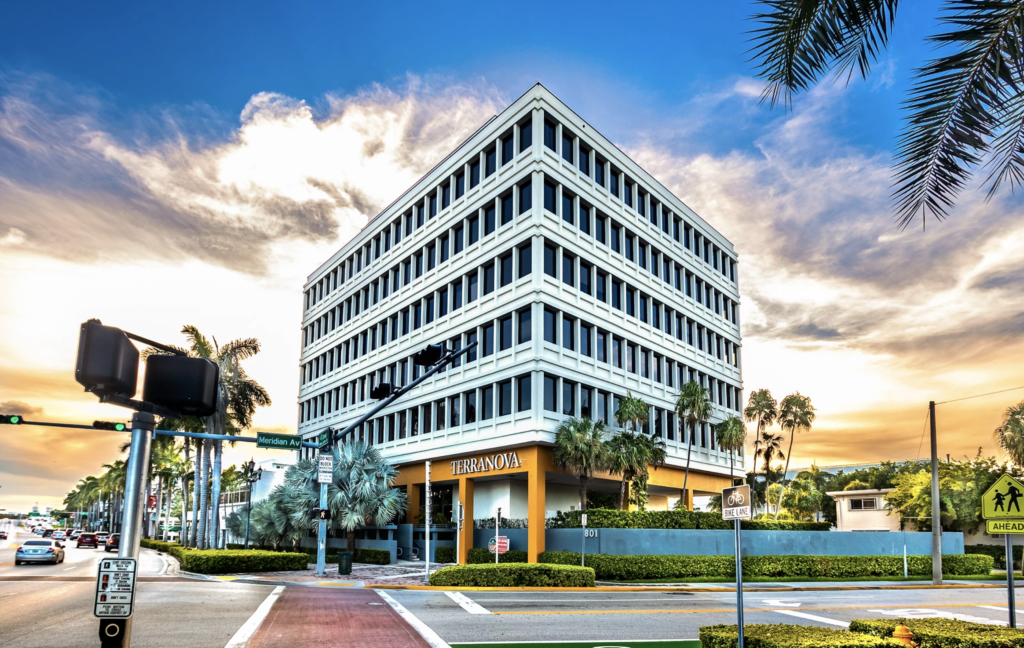Thirty years ago, if someone had mentioned the idea of a “pop-up store” the vision that most likely came to mind was that of the Halloween or holiday stores that seemed to simply appear in your local strip mall during the season only to vanish without a trace a few months later. However, since the early 2000’s short-term retail locations have become an attractive way for retailers to connect with their customers in an increasingly digital world as well as create brand awareness through the excitement generated from a temporary location.
In-tandem with this surge in popularity has been the novel coronavirus pandemic that has forced retailers across the United States to rethink their strategies as consumers turned online for purchases. In the first quarter of 2019, companies such as Gap, Abercrombie & Fitch, and Macy’s saw their sales drop up to 50% because of store closings, and in the first six weeks of lockdowns the ecommerce platform Shopify saw a 62% increase in first-time users.
While many have moved their shopping habits online, year-over-year consumer spending is still down 6.1% in the United States as shoppers have begun to think more critically about where and how they are spending their money. With the growing correlation between local brick-and-mortar shopping and a consumer’s investment in the person or story behind a product, pop-up shops have become a marketing mainstay for retail businesses seeking to connect with their customers. In addition to this, a short-term lease poses a much smaller risk than a long-term one would, and allows a business a testing ground for everything from location foot traffic to product offerings.
For the southern Florida commercial real estate firm Terranova Corporation, they have been able to grow over the past 40 year to be a fixture within their industry by anticipating and adapting to the needs of both their retail partners and the consumers. Founder and chairman Stephen Bittel has observed shopping habits shift from the suburban strip centers of the 1990’s to the downtown urban cores that anchor new developments today, and with each change ensured that his company continued to operate in a way that was conducive to these trends. With pop-ups proving to be an increasingly effective tool for retailers, Bittel and Terranova plan to target local and regional retailers to occupy open retail space within their Lincoln Road portfolio.
Bittel always had a knack for following his gut when it came to business decisions. A native of Miami, he traveled up the coast to attend the highly selective Bowdoin College in Maine for his undergraduate degree in economics. After college he spent a year in Europe participating in the Watson Fellowship. Moving back to Miami upon the completion of the fellowship, Bittel enrolled in the University of Miami School of Law and intended on becoming a lawyer like both his father and grandfather before him. However, he had developed a keen interest in business during his time obtaining his economics degree, and when during his first year of law school he saw an opportunity to invest in the real estate market he took it. He worked tirelessly to grow the business from his home office while simultaneously attending law school and eventually studying and passing the bar exam.
In the late 1980’s, the commercial real estate market went into recession, but Bittel made the most of an unfortunate situation by offering his company’s management services to insurance companies and banks who had involuntarily become owners of commercial real estate when loans defaulted. When the market rebounded, he grew his company’s portfolio by purchasing entire shopping centers and strip malls in the municipalities of Miami-Dade county. As young and growing families moved out into suburban areas where they could get larger amounts of square footage for less money, demand for close access to grocery stores, pharmacies, and popular chains grew. By developing relationships with companies such as Publix, Walgreens, and Starbucks, and using them as a retail anchor, Terranova was able to successfully operate over 100 open-air shopping centers where consumers and tenants mutually benefited.
However, as the early 2000’s rolled around Bittel astutely recognized that young home-buyers were no longer flocking to the suburbs as they once were. Instead, they were purchasing older homes located much closer to the city center and renovating them, preferring proximity over sprawl. As a result, Terranova turned their focus from suburban shopping centers and instead began building their portfolio of urban retail centers in areas that were part of a walkable downtown core. His first investment was an eight-property portfolio on Miracle Mile, a stretch of the main east-west road in Coral Gables’ central business district, and he next turned toward the Miami Beach downtown area known as Lincoln Road. At $850 per square foot, Terranova purchased $52 million worth of property initially to the shock of many who saw the price as excessively high. However, the lessons Bittel had learned about strategic leasing from his time in suburban commercial real estate proved useful and the properties’ value quickly skyrocketed. In 2014, Terranova made history as part of one of the largest property sales in the history of southern Florida, making headlines for the sale of their Lincoln Road property for an astounding $342 million.
Despite the sale, Bittel and Terranova Corporation continue to remain active in their Lincoln Road properties. The pedestrian road has been Miami Beach’s social center since it was originally cleared of mangrove trees for development in 1912. It quickly became a retail destination, housing brands such as Bonwit Teller, Saks Fifth Avenue, Cadillac, and Packard on its stretch. In the 1950’s the city commissioned Morris Lapidus to redesign Lincoln Road in the “MiMo” (Miami Modern architecture) style he had popularized with the Fountainbleau and Eden Roc Hotels. The architect’s design utilized gardens, fountains, and shelters and included an amphitheater. Soon after, the road was billed as the “most magnificent mall in all of the Americas,” closing completely to traffic and becoming one of the nation’s first pedestrian malls. Today, Lincoln Road features the architecturally acclaimed 1111 Lincoln Road parking garage, the New World Center concert hall, as well as the newly restored performing arts venue Colony Theatre. In November of 2019, the city announced a $67 million rejuvenation project that will be helmed by James Corner, the landscape architect responsible for New York City’s successful High Line.
While plans for the rejuvenation project still remain in place, it has been put on hold in the wake of Covid-19. Instead, Lincoln Road’s Business Improvement District (BID) has been focused on a recovery plan that supports their businesses and protects their visitors, and the improvement district’s executive committee unanimously voted to support and promote pop-ups during the upcoming holiday season. Looking to work with local cultural organizations that may want a space on Lincoln Road during the holidays, the BID hopes that the pop-ups will aid in boosting business as well as filling vacancies for the stretch, which is currently at 74% capacity. Always ahead of the curve, this is a strategy that Bittel and Terranova Corporation have already been actively working to implement. They intend to have an active holiday shopping season, and are already in communication with a plant store and a vintage boutique on leasing to them as short-term tenants. In addition to their strategy of targeting local and regional retailers to boost business and lure shoppers back onto the street, they are also discussing making unique arrangements with their tenants for rent, such as charging the cost of occupancy plus a percentage of sales instead of the standard flat-rate model.
Whether they’re industry stalwarts or a start-up newcomers, pop-ups are a useful tool that can serve as testing grounds for retailers in more ways than one. In addition to the obvious ability to test out a particular location or market, retailers can also use the space to do a soft launch of new products. With about 95% of purchases still completed offline, a short-term pop-up space also serves as an opportunity to take advantage of this retail channel. For “click-to-brick” brands that have operated solely online, the pop-up retail format also allows them to get to know their customers on a more personal level and build stronger relationships.
Another good use for a pop-up space in today’s day and age is to test operations with new health safety protocols such as contactless payments and social distancing. With the laws and rules varying drastically from region to region, brands and retailers must find a balance of making their customers feel comfortable with safety protocols without sacrificing the atmosphere of the space. Indeed, it is more likely that in the near future, a pop-up space won’t necessarily be of the experiential nature we’ve seen cropping up for big-name DTC brands such as Everlane or even Amazon, but instead about rescuing and re-evaluating ways to move forward in a post-pandemic world. Landlords, especially those like Terranova who have multiple properties or storefronts in one area or shopping center, will be more likely to keep up the momentum of foot traffic if they are able to keep their spaces leased. Bittel and his team have already begun what many industry experts are saying is the best approach to filling retail spots, bucking the one-size-fits-all model and remaining flexible in their leasing structures. This strategy even has a greater potential to return in their favor, as roughly one third of pop-up deals eventually translate into a longer-term commitment.
With people like Stephen Bittel at the helm of companies such as Terranova Corporation, urban developments such as Lincoln Road are better positioned to survive the coronavirus pandemic that has seen countless businesses fail. Having a history of remaining flexible in the ever-changing tides of commercial real estate, it is Terranova’s openness to exploring new avenues of gaining revenue that have helped it grow to be one of the top commercial real estate firms in southern Florida.




